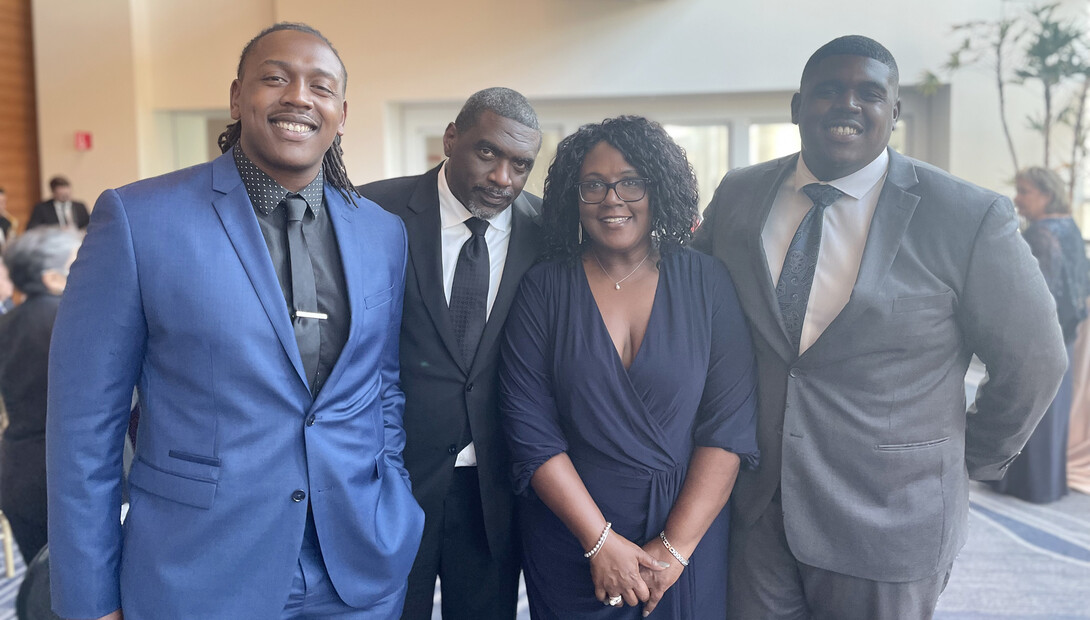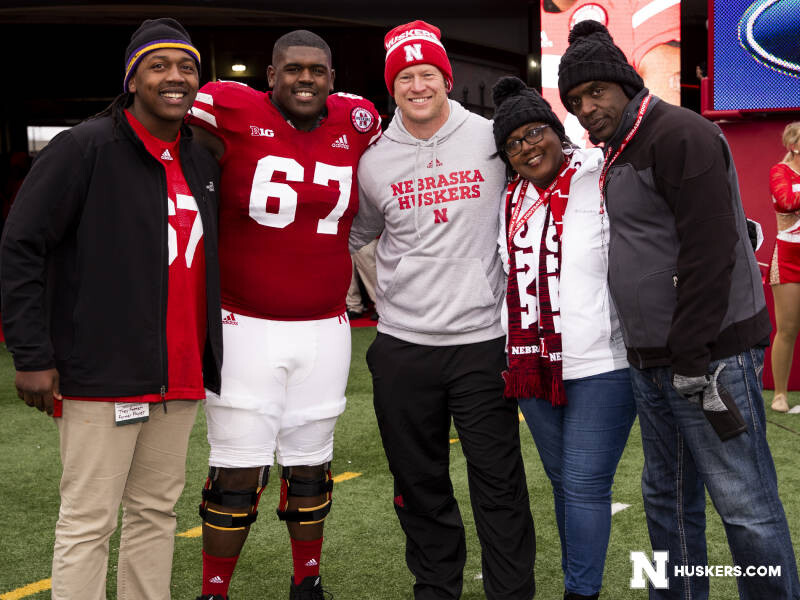
Editor’s Note — Nebraska Today writer Annie Albin asked Charlie Foster, assistant vice chancellor for inclusive student excellence, for a personal reflection on Juneteenth, and what it’s meant to her family.
The Fosters moved to Lincoln the summer of 2001. We didn’t find out about Juneteenth and the Lincoln celebrations until the following summer. The friends that we have in Lincoln (and from the University of Nebraska–Lincoln) knew that we had children, so they suggested that we attend. We gathered up our folding chairs and a cooler of cold sodas to take with us.
We were overwhelmed by the friendliness and open hearts that surrounded us. We laughed about suddenly meeting all of our new best friends. For the boys, it was freeing as they could see other little boys with skin the color of coffee and chocolate.
We would go on to attend whenever we were in town. It became just one of the things that our family did together. Another was attending the Martin Luther King, Jr., march, but that is a story for another day.
The boys grew into men and they would attend the Juneteenth celebration with friends that they brought along from UNL. Their football team members or fraternity brothers would all come along. They would volunteer their time playing games with kids or supplying cold sodas. It became a part of our life.
I will not soon forget the joy we have had at those celebrations or the wonder of watching my boys turn to men along with the other kids we met each year. We are thankful for the memories and the opportunities we had to teach our children about all the good things Black families do in Lincoln. It was a living history lesson that we get to celebrate each year.
Juneteenth, otherwise known as Emancipation Day or Freedom Day, celebrates the day in 1865 on which all those forced into slavery finally became free.
Though the Emancipation Proclamation went into effect in 1863 and freed many, enslaved people in Confederate-controlled states did not see the law implemented in their territories. On June 19, 1865, Union troops arrived in Texas and announced that the 250,000 remaining enslaved people within the state were free — a declaration that spurred the holiday we now know as Juneteenth.
The United States Senate voted June 15 to make Juneteenth a federal holiday in the Juneteenth National Independence Day Act, followed by the House of Representatives on June 16. President Joseph R. Biden signed the bill into law June 17. It was also announced June 17, by University of Nebraska system president Ted Carter, that all university offices will be closed June 18 in observance of the holiday.
To learn more about the history of Juneteenth, visit the National Museum of African American History and Culture’s website.








